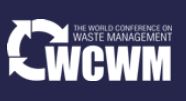A Study on Challenges for Adoption of Reverse Vending Machine: A Case of North Bengaluru, India
DOI:
https://doi.org/10.17501/26510251.2019.1202Keywords:
Reverse Vending Machine, Willingness, Plastic, Convenience, InvolvementAbstract
India will be producing 80-85 MT of Solid waste by 2030. Given the alarming quantity it is
imperative to bring in methods which will alleviate the problem especially the plastic waste. One of the
products which helps in effective disposal of plastics is the Reverse Vending Machine (RVM). An RVM is
a device which accepts bar coded plastic bottles and returns digital cash or redeemable coupons. The field
study and literature show that reverse vending machine is not used extensively. This study attempts to
explore the challenges for adoption of eco-friendly products like RVM. A conceptual model was built using
the variables identified through literature review. The variables identified included awareness, willingness,
incentives, convenience and involvement. A survey was designed and data was collected from 246 citizens
to understand their views. Structural Equation Modelling was used to test conceptual model. The results
emphatically show that willingness to adopt RVM was influenced by factors of involvement, convenience,
awareness and incentives in that order. It is also intuitive that when involvement is high then there is an
attempt to become aware and adopt eco-friendly methods which is reiterated by the results. Hence citizens
have to get involved either by their own interest or by enforcing through legislation and policies to use
RVM. The study concludes by recommending more policies and strategies like “bottle bill”, “European
Union Plastic Strategy” and Recycle Refund Systems to be mandated across the world to encourage
citizens to use methods which will keep our environment plastic free.
Downloads
References
Al-Salem, S., Lettieri, P. and Baeyens, J. (2009). Recycling and recovery routes of plastic solid waste (PSW): A
review. Waste Management, 29(10), pp.2625-2643.
Andreasen, A.R., 1995. Marketing social change: Changing behavior to promote health, social development,
and the environment (p. 101). San Francisco: Jossey-Bass.
Breckler, S. J. (1990). Applications of covariance structure modeling in psychology: Cause of concern?
Psychological Bulletin, 107, 260-273.
Bor, Y.J., Chien, Y.L. and Hsu, E., 2004. The market-incentive recycling system for waste packaging containers
in Taiwan. Environmental Science & Policy, 7(6), pp.509-523.
Proceedings of the World Conference on Waste Management, Vol. 1, Issue 2, 2019, pp. 15-29
Domina, T. and Koch, K., 2002. Convenience and frequency of recycling: implications for including textiles in
curbside recycling programs. Environment and behavior, 34(2), pp.216-238.
Fornell, C. and Larcker, D.F., 1981. Structural equation models with unobservable variables and measurement
error: Algebra and statistics.
Geller, E.S., 1989. Applied behavior analysis and social marketing: An integration for environmental
preservation. Journal of social issues, 45(1), pp.17-36.
Ghosh, S. (2018). India to galvanise greater action against plastic waste on World Environment Day. [online]
Mongabay-India. Available From: https://india.mongabay.com/2018/04/india-to-galvanise-greater-actionagainst-plastic-waste-on-world-environment-day [Accessed 28th November 2018]
Guerrero, L., Maas, G. and Hogland, W. (2013). Solid waste management challenges for cities in developing
countries. Waste Management, 33(1), pp.220-232.
Gupta, S., Mohan, K., Prasad, R., Gupta, S. and Kansal, A. (1998). Solid waste management in India: options
and opportunities. Resources, Conservation and Recycling, 24(2), pp.137-154.
Hoornweg, D. and Bhada-Tata, P., 2012. What a waste: a global review of solid waste management (Vol. 15, p.
. World Bank, Washington, DC.
Mohee, R. and Simelane, T. eds., 2015. Future directions of municipal solid waste management in Africa.
Africa Institute of South Africa.
Momoh, J.J. and Oladebeye, D.H. (2010). Assessment of Awareness, Attitude and Willingness of people to
participate in household solid waste recycling program in Ado-Ekiti, Nigeria. Journal of Applied Sciences in
Environmental Sanitation, 5(1).
Mwanza, B. and Mbohwa, C. (2017). Drivers to Sustainable Plastic Solid Waste Recycling: A Review. Procedia
Manufacturing, 8, pp.649-656.
Nunnally, J. C., & Bernstein, I. H. (1994). The assessment of reliability. Psychometric theory, 3(1), 248-292.
Saunders, M. and Thornhill, A., 2004. Trust and mistrust in organizations: An exploration using an
organizational justice framework. European Journal of Work and Organizational Psychology, 13(4), pp.493-
Sidique, S.F., Joshi, S.V. and Lupi, F., 2010. Factors influencing the rate of recycling: An analysis of Minnesota
counties. Resources, Conservation and Recycling, 54(4), pp.242-249.
Tomari, R., Kadir, A.A., Zakaria, W.N.W., Zakaria, M.F., Wahab, M.H.A. and Jabbar, M.H., 2017.
Development of reverse vending machine (RVM) framework for implementation to a standard recycle bin.
Procedia Computer Science, 105, pp.75-80.
Valle, P.O.D., Rebelo, E., Reis, E. and Menezes, J., 2005. Combining behavioral theories to predict recycling
involvement. Environment and behavior, 37(3), pp.364-396.
Downloads
Published
How to Cite
Issue
Section
License

This work is licensed under a Creative Commons Attribution 4.0 International License.







